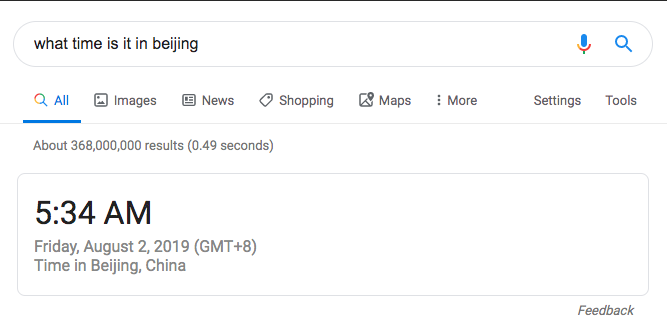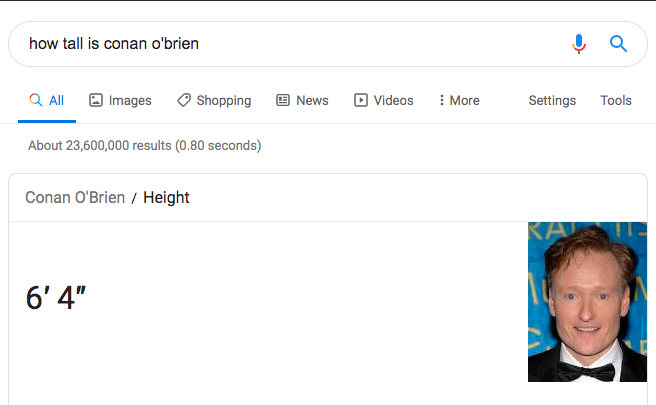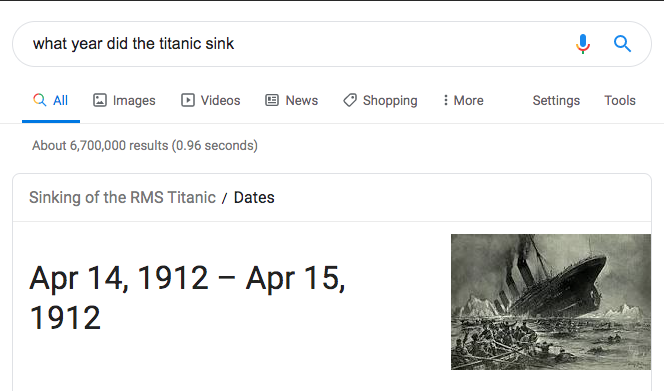State of Search
What Is Search Intent and Why Does It Matter?
Search intent is the motivation that underlies a query entered by a user into a search engine. The importance of search intent in digital marketing strategies has increased as search engines and users have become more sophisticated. We make more complex, conversational searches — 50% of searches are comprised of four words or more — […]

Search intent is the motivation that underlies a query entered by a user into a search engine. The importance of search intent in digital marketing strategies has increased as search engines and users have become more sophisticated. We make more complex, conversational searches — 50% of searches are comprised of four words or more — and get more specific answers in our search results.
The beauty of those more complex, conversational searches? Our customers and audiences are telling us exactly what they want. Marketers typically categorize search intent into three types actions — Do, Know, and Go — based on specific keywords in the search query. There is also a Know Simple subcategory to cover queries with short, simple, uncontroversial answers — the types of queries that can result in no-click searches.
Do: Transactional or Commercial Search Intent
These are searches that indicate the user is ready to take action. They show intent to make a purchase or visit a location:
- "pizza near me"
- "GUESS jeans on sale"
- "Driving directions from Salt Lake City to Bryce Canyon National Park"
- "Deals on outdoor Bluetooth speakers"
- "Used bike parts Austin, TX"
- "Kiehl's free shipping"
Learn more about high-intent keywords.
Know: Informational or Investigational Search Intent
These searches are commonly classified as showing a user who wants to learn something, rather than buy something:
- "How tall is Tom Cruise?"
- "How to fix a dripping faucet"
- "What's the capital of Croatia?"
- "Save PDF to iPhone"
- "Training plan for 5k race"
- "Smokey eye makeup tutorial"
- "Where was the first Taco Bell?"
What's interesting about informational searches is that some present opportunities for savvy digital marketers to move searchers toward a transaction. The person who searches "training plan for 5k race," for example, might end up subscribing to a magazine about running — or subsequently making more transactional searches for sneaker reviews or "best wireless headphones for running."
Unbranded searches that include words like "reviews," "compare," "affordable," or other terms that indicate the searcher is doing research related to products or services you offer can be considered informational OR transactional — it all depends on your customers and their paths to purchase.
"Know Simple": Short Answers
Google introduced this category in 2015 with the public release of its Search Quality Rating Guidelines. It refers to questions with factual answers of two sentences or less.



Go: Navigational Intent
These searches are usually branded and paired with keywords reflecting a specific page on your website or piece of information about your business — the user knows what they want, and they don't want to navigate through your homepage to find it.
- *Your brand name +*FAQ
Locations
Customer Service
Phone Number
Website
App
Support
Why Search Intent Matters for Marketers
Search intent is useful on two levels: First and foremost, organic traffic is still the biggest driver of traffic for your website, so ensuring you have pages optimized for your customers' intents is essential. Second, researching and understanding the intent behind the keywords that drive traffic and conversion on your site gives you amazing, actionable insights into your customers and what matters to them.
The best part? You already have data that can uncover your customers' search intent. Dig into your SEO tools, your SEM tools, and Google Search Console. The keywords that are driving traffic and engagement on your brand domain will help you parse intent and map your customer journeys.
Don't forget to check out the current search results for the terms that matter to your business as well — studying the search result features available on Google and Bing in the form of knowledge panels, rich snippets, related search terms, and Google's "People also ask" feature can help you identify new ways to optimize your existing site and uncover new opportunities to win in search.
